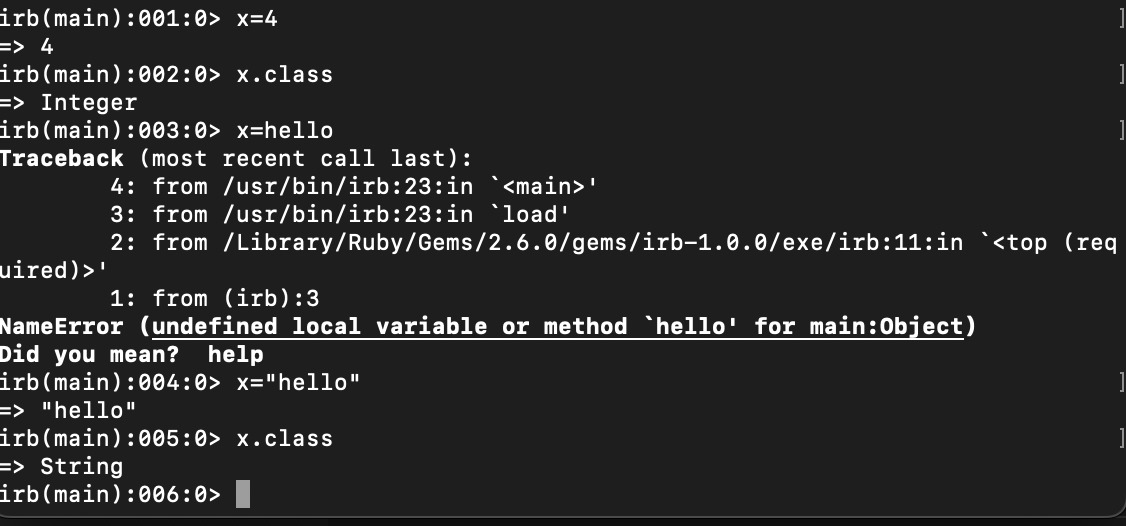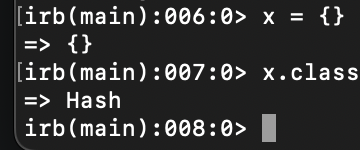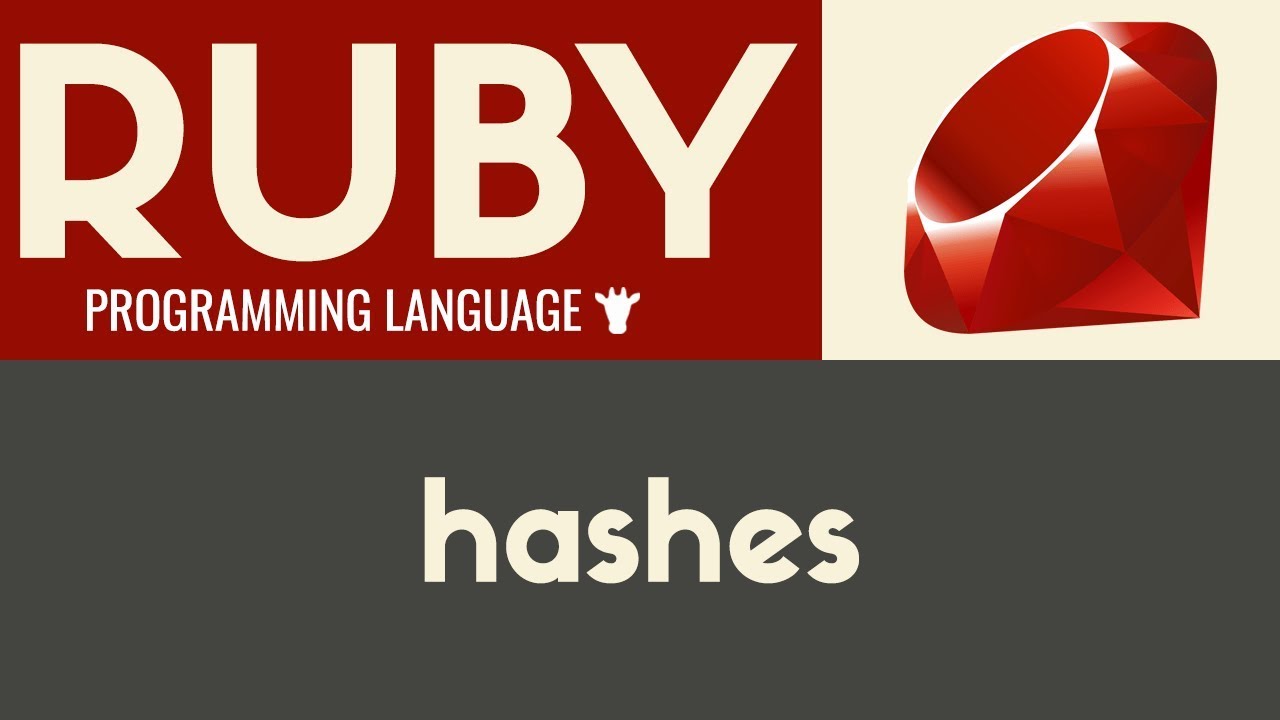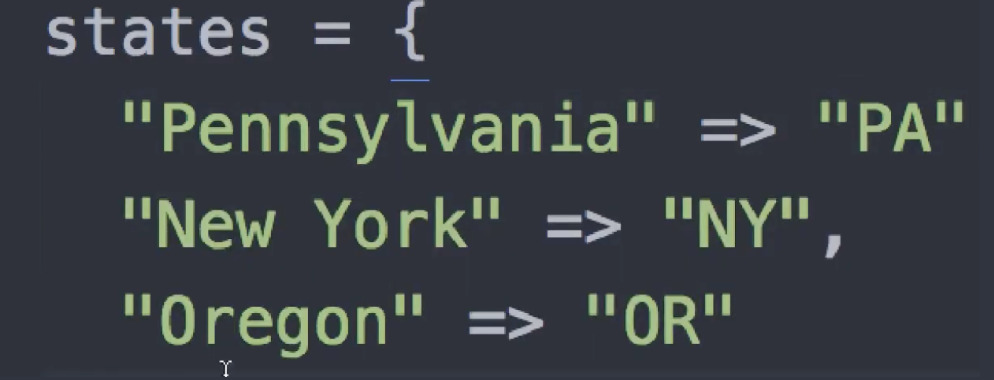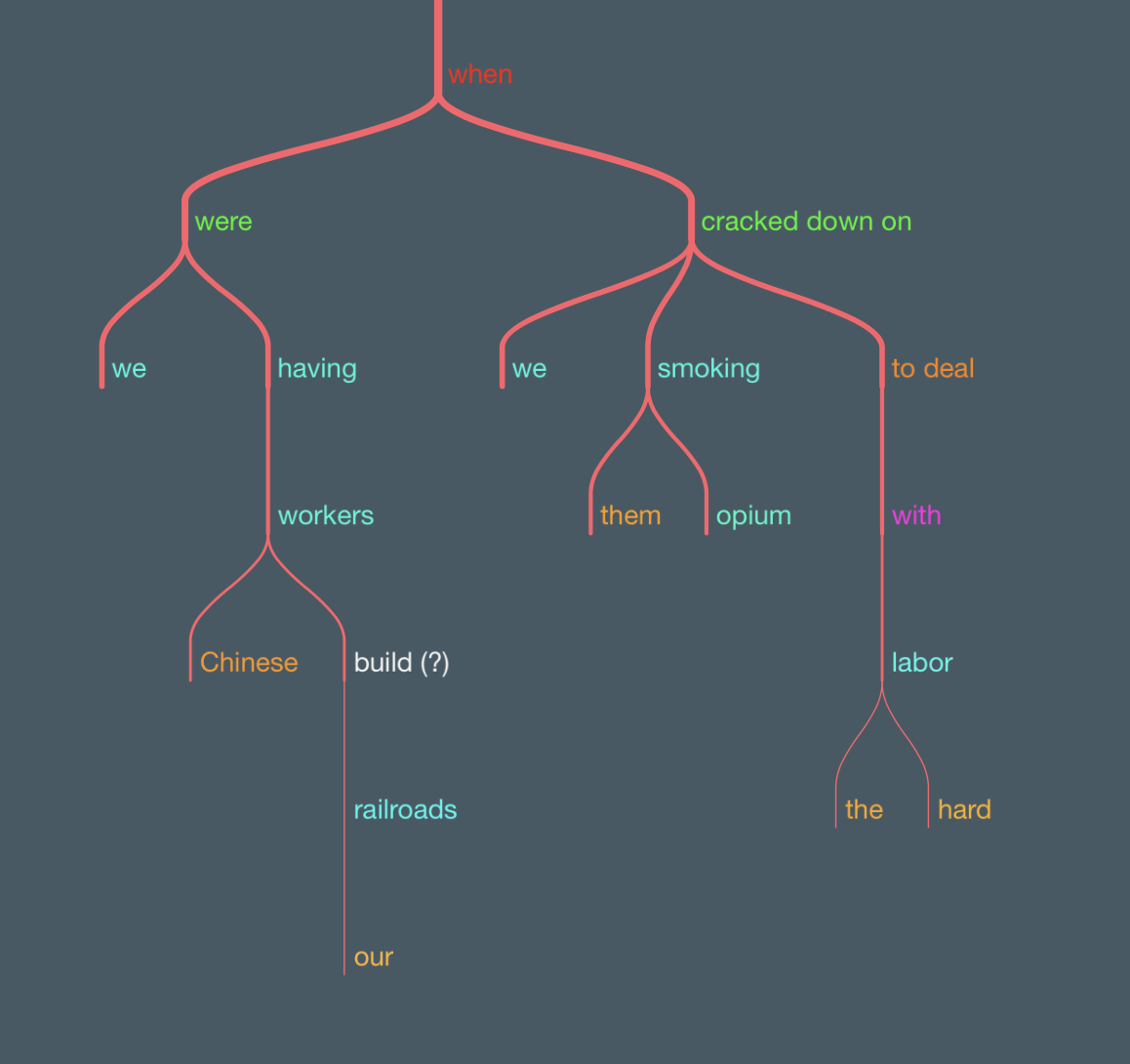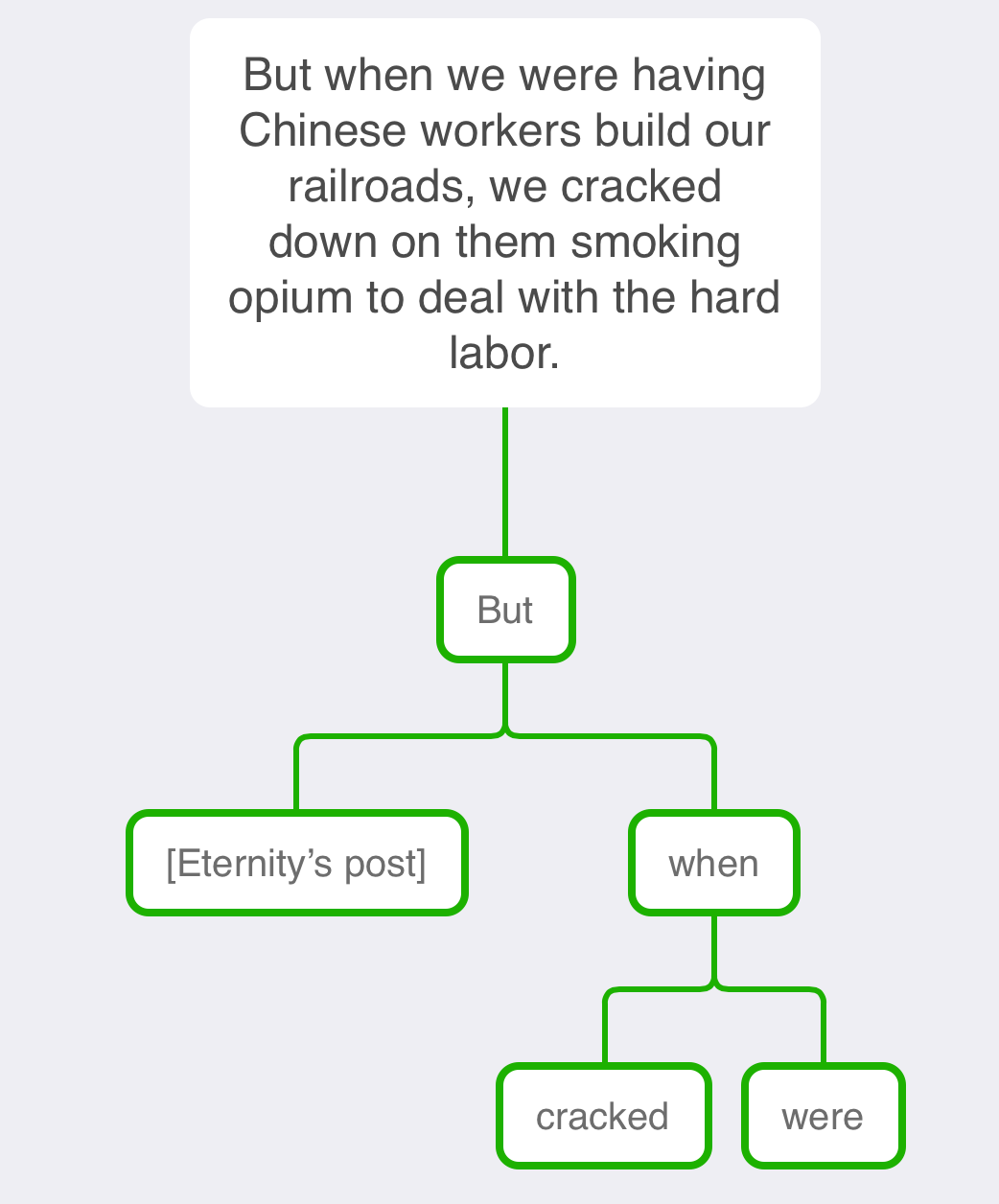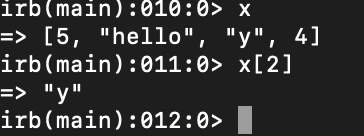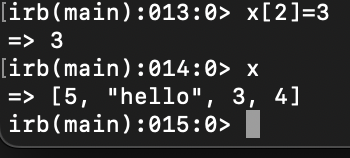Look at these assignments LMD Async Tutoring - #855 by Elliot and see if those are something you’d want to do.
Ok. When I think of brainstorming. I think of thinking about something without referencing anything. For example: brainstorm about cars. I would write a bunch of stuff I do know about cars that I can think of and stuff related to cars that I can think of. I wouldn’t, however, look up stuff to get more information about cars that I didn’t know of. Is this process of brainstorming correct? If so. I don’t know how I’d exactly brainstorm all the things the company did in the video. Maybe I’m a little confused as to what brainstorming is? I just watched the video and noted down anything I could see as negative for consumers/stuff that consumers might dislike.
- They reduced the amount of cake mix stuff in a box.
- It was almost a 60 gram difference
- This is bad going off the assumption that baking is affected by small changes like that. Also in general people like getting more stuff for their money, this is less stuff for their money.
- They didn’t reduce the amount required for the liquid ingredients just the stuff for the dry ingredients. Baking is viewed as more “science” than “art” so it requires more precise measurements.
- She says that it will 100% change the how the cake turns out.
- Consumers dislike being tricked. This feels like tricking them. Figure out at what point people will no longer notice anything.
- Betty Crocker, presumably, changed the mixes just to the point that consumers wouldn’t notice it.
- They changed the weight and, along with it, the design of the box.
- They probably did this to claim its a new product. Maybe? I think changing your box isn’t bad. Changing your box and weight at the same time feels like a trick to claim its a new product or something maybe?
- Hmm I didn’t say why it was bad for consumers. So I went through these real quick and wrote my reasoning.
No. I wouldn’t say that per se. I would say my interest is not as high. So far how I’ve more or less felt about the stuff we’ve gone over is that at the beginning I have quite a high level of interest because I want to be a philosopher and these are things related to philosophy. As time goes on I slowly lose interest. I do think I’ve lost some interest in programming due to not being able to give it a good amount of time recently.
I do think maybe switching to some stuff related to law would have some benefits because I would find it more interesting independently of it being related to philosophy (I assume any stuff related to law would be related to law and philosophy). I think it could help build some momentum back on for working on philosophy stuff?
To clear up: there hasn’t been anything yet that I’ve felt like I’m forced to do in general. I do think at times I forced myself to post more consistently like with the grammar stuff for example. I do think the grammar stuff is interesting, but not interesting enough that in a relatively busy day I’d care to make time for it. Programming is interesting to me just not enough to make myself find time on a busier day. I was planning on working on some programming stuff but I’ll wait for your response on this. Whether we’ll move to stuff closer to law or not.
That’s normal but you can also mix other activities like research in with brainstorming.
If you watched the video and still remember it well, then you should have a decent idea in your head of what happened, and you can brainstorm based on that memory. If you don’t remember the video well enough, then you’d have to rewatch some.
Also, the point isn’t to brainstorm directly about the video. The assignment isn’t to analyze the video itself. The video tells you a scenario. Then you brainstorm about the scenario. Your brainstorm can use things that the video didn’t say which seem likely to be true in that scenario. You can also pick up on implied things the video didn’t say (implied by how reality works, not implied by the video script).
They reduced the amount of cake mix stuff in a box.
and 3 other points.
Can you brainstorm more? Like say you were a lawyer who was potentially going to sue them. Could you brainstorm a dozen or more ways they may have wronged or harmed your potential clients? Could you brainstorm some laws they may have broken? (Breaking a law is, in general, a way of treating consumers badly, so this isn’t really separate, but I thought the additional prompt might help.) You can include speculative points that might be true and would be reasonable to investigate further. Like maybe the company did X, and if so then we’d have a great case to sue, and we can find out whether they did or not by doing Y. Where X is something the video doesn’t present as a fact, which you’re just making up because it fits the scenario reasonably well.
Less high interest is a problem. It’s a more polite or positive formulation, but when interest drops low enough you aren’t fitting stuff into your life, and it’s lower than when you were enthusiastic, that’s a problem.
Some potential ways to address that problem:
- Continue for a while and maybe the situation will improve. Maybe it’s temporary, and you don’t know exactly what the cause is, but it will go away after a bit without an explicit, planned solution. (It sounds like this has already been tried without much success.)
- Change topics. (Already tried once going from grammar to math/programming.)
- Learn more about why a current topic is important (in a positive way – what’s good about it). (For example, I’ve heard that some important legal cases have hinged on wording details or laws or contracts, including a single comma. Looking up more details about that, then keeping it in mind, might increase interest in grammar study.)
- Learn more about errors or weaknesses you have, so you can see why practice and study related to them is important.
- Think about and change your preferences and life goals to be more philosophical.
- Decide your emotions don’t match your conscious opinions and try to change them.
- Decide you aren’t that into philosophy and go do something else that you’re more enthusiastic about.
The simplest one to try is changing topics again to stuff more related to law. So maybe we should just do that, and if that doesn’t work well we can revisit other options. If it doesn’t work well, we should also get some new information, do you lack high interest or are you making errors so the activities don’t go well? (Each of those can cause the other though, so you don’t always get a clear answer about which one is the problem. And there are other problems that sometimes get misidentified as one of those two more common problems.)
Besides the cake mix, two other topic options are Eternity Async Tutoring - #702 by Elliot and there’s also the Honey topic that we could analyze further (as well as various things I’ve posted in the last few months that you haven’t replied to, but a bunch of those could work too). Or if none of those sound great to you, just OK, then we could consider others.
@lmd FYI
Ok. Didn’t have much time today but I just thought of something. Many times throughout my life I become motivated for a certain period of time, pursue something, and then lost interest. I did this with Japanese a few times (and still am doing it, now I’m currently studying it again). I’ve done this before with law, medicine, and philosophy. I try pursuing the thing for a while with high interest and then end up losing interest. Hmm. Why is that?:
- I end up getting really interested in something but I don’t know how to pursue it. I pursue it in a manner that is overreaching and end up getting burnt out. I’ve done that a few times.
- I have trouble juggling interests. This, I think, is a big one. For example, the longest period I studied Japanese consistently was about ~2 months. I then wanted to get back into philosophy (this was years ago). I start reading philosophy books and that ends up taking a lot of time. Now I have no time for Japanese. I then end up dropping Japanese to make time for my philosophy. After a while of Philosophy I remember that I dropped Japanese that I really liked and it kinda cycles. Next time it may be Law. Or medicine (though this interest I rarely come back to because being a doctor seems awful, though I guess I never really thought about this).
- Hmm. I haven’t really in some kind of decisive manner settled on philosophy against other things. Even with law I still like other things. I would say I’m less neurotic nowadays then I was when I was younger (I’d go from law, to math, to physics, to philosophy, to gaming, to just about anything), but I still am not too sure. I think that plays a part? Even as I say that I decided against medicine I still find it really interesting. I do think philosophy is my biggest interest and the one interest I’ve put the most time into (not the most effective time per se). So I guess that kind of lines up with what you said here:
Philosophy, I think, is my biggest interest, Law is a very close second. Hmm. Yeah. I think I have a mix of not understanding the relevance of some of the stuff we’re doing (which I can totally try and learn more about, I do like the comma example with law) and being undecided on what I want to do/why I’m pursuing philosophy. Oh yeah I’ll also quickly mention here (I don’t know if I already did, too tired to check) that I did get back into Japanese for the past three weeks or so.
Hmm. Just occurred to me that while some of it may be due to Japanese (or whatever other interest), but I could not. Could manage my time better. Could get better at focusing on things that matter to me. Could actually make it clear to my subconscious which things matter to me so its easier to do.
We could talk about time management strategies if you want but I’m not sure if that’d be particularly effective.
The biggest issue, from my point of view, is that you should be more vocal, earlier, when you aren’t satisfied with things, disagree with things, or have other problems.
Broadly, as I see it, we tried some more advanced stuff early on and you made errors. Then we switched to working on improving prerequisites and you seemed happy with that. Several times I brought up more advanced topics with you and @lmd directly, to see how they went and mix them in sometimes, but neither of you seemed very enthusiastic about them. I also posted plenty of other things on the forum that you could engage with as more advanced topics but without giving you a direct assignment, and you generally don’t reply to those things. Which is fine. I’m not complaining. It’s just that I thought you preferred practicing things that were more basic, easier, less overwhelming, less hard, etc… things which gave you more of a clear path for what practice activities to do and how to do them.
If you want to try to debate me about something, or get guidance on debating someone else, or analyze a harder topic involving CF epistemology or law (e.g. examples of fraud by big companies), or do something else with CF relevance within my expertise, you can just post about it or ask if it’d work.
Thats part of it I think. I do think I should have been more vocal about certain dissatisfactions. Hmm. I don’t think I made my point clear. I think/thought part of it is a time management issue but I think part of it is I get bored with stuff after a while. Is this normal? I do quite a few things with high enthusiasm interest for a while and then I just get sick of them. Sometimes it can be because the thing got too hard, overwhelming but I don’t think thats always the case. I picked back up Japanese. Started small. I’ll probably not want to do it again in a few weeks I think. I’ll drop it and pick it back up with high interest again. I think I’m doing/did that here. I didn’t post that much. Listened to some of your philosophy stuff while walking. Now I’m back to writing with high interest.
Now that I think about it. Have I ever consistently held an interest for long and enjoyed it without any drops? hmm. video games in the past yes. though i do think when i intentionally tried learning about video games my interest dropped. i held high interest in games like PayDay 2, CS:GO, and League of Legends by just spam playing them and not thinking much. for how much time i invested in those games i never really got that good, even thought I put a minimum of 1000 hours in each of them. i think trying to learn about the games bored me?
idk. just more thoughts on this.
I thought so too. Hmm. I think I fail at communicating how difficult some things may be at times? Though I think thats partially because things vary in difficulty at times due to my energy and ability to focus so I don’t say much because I don’t think its the tasks that difficult. I’ve shared before that my life management isn’t good. I do know that if I’m tired I have trouble doing stuff. I’m tired often. This is primarily due to poor time management I think. When I get enough sleep I work fine. Should I be able to study better while tired?
Actually related to time management: I cut back philosophy (or Japanese, or video games, or whatever else) randomly almost to work on sleep at times. Actually thats a good point: certain times as of recent I’ve cut back on philosophy because I want to get to bed. In the past I would try and squeeze some time in. Now (or at least sometimes, I don’t want to imply that its consistent) I will drop philosophy to sleep, or to go workout. Maybe time management and prioritization is something I need to work on (well I do think I need to work on, but I do think its a big issue affecting me here).
Thoughts? (sorry about how its disorganized a bit).
neat
I thought the {} part was unnecessary but then the following steps didn’t work. I guess that makes the variable a hash. Actually wait.
neat
I watched this and took notes:
My notes:
- A hash is a type of data structure where we can store a bunch of information.
- Hashes are very similar to arrays.
- Hashes store a key-value pair.
- A key-value pair is when we store a value and give it a key (kinda like a name).
- They’re like dictionaries.
- Keys need to be unique.
- The left sides are the keys. The right side are the values.
- I can use colons : instead of quotation marks.
- Arrays are a list of individual values. Hashes are key-value pairs.
My code:
states = {
"Michigan" => "MI",
"Washington" => "WA",
"California" => "CA",
}
puts states["Michigan"]
I didn’t get how to put multiple things in irb directly so I ran code instead.
you can copy/paste multi-line code into irb, separate lines with a semi-colon, or use option-return to type a line break in irb.
![]()
{} is just an empty hash. Hash.new() also works. Most classes have a “new” function which is called a constructor. String.new() will return a blank string. Once you have a hash saved in a variable you can add new keys and values to it (or change the existing value for a key), in addition to being able to start with some keys and values as you found.
Yeah it’s very normal.
People go through life that way and do fine. But it’s problematic for certain goals, like super high quality knowledge. It’s like how most people get bored and switch activities long before they get a speedrun world record.
One of the reasons people get bored is that they had already stopped making progress for a while. So another way of looking at this is people usually get stuck and give up (and switch activities) long before becoming one the best in the world at what they’re doing. Which is mostly fine – they can still have good lives. But if more people were more successful instead of getting stuck, humanity could be doing better.
There are lots of other reasons for getting bored too. There are so many things that could be going on in general. But with smart people who like getting better at things, a pretty common pattern is they take up new interests, get better rapidly, run into a hard part, get stuck, get bored, switch activities. When the activity involved certain kinds of problem solving, they did well, but there are some other types of problems they don’t know how to solve and get blocked by, so when they run into one of those they stop making rapid progress and end up switching interests.
I think it’s really valuable to be able to work on philosophy stuff while tired. If you can’t, that indicates you don’t have good enough automatizations, habits, methods, etc., and it makes it hard for philosophy to affect your life (you spend well over half your waking hours not at your best, so if you only do philosophy during your peak time when you’re at your best, then it’s excluded from the majority of your life).
Another way to look at it is that robust error correction should still be effective when you’re tired.
I also think getting enough sleep is really important. But even if you get enough sleep, you’ll be semi-tired for the majority of the day, not super fresh/sharp/energetic/etc.
It’s possible what you’re referring to as being tired, I’d see more as being really tired, due to inadequate sleep, rather than the normal level of tired that you should expect to have for a lot of most days. In that case, some of my comments don’t apply: being able to do philosophy stuff while exhausted from sleep deprivation is hard and not so important. Whereas still being able to do it while being a little tired is important.
Philosophy work takes more energy than a lot of other activities, so you might have sorta gotten away with 6-7h avg sleep in the past but need a full 8h when doing a lot of philosophy.
In the last couple years, my average sleep per day, including naps, is around 8.5h.
You could try creating and following a schedule. I imagine it’d require a flexible format due to work hours varying. E.g. you could make a daily schedule for each different work shift and for no work and use whichever one applies each day. Some people do well with this kind of thing and others don’t, so I don’t know if it’d work for you or not.
Another option is just to gather information: do a bunch of time tracking to see where your time is going. You may want to estimate your time use first, then you’ll be able to compare your data to your estimates to see if you’re spending more time than you realized on some stuff.
Hmm. Thats fair. I think I feel guilty(? i don’t know if thats the right word) when I have that energy decline. I feel like I messed up. Over time I’ve heard a lot of claims about how to fix energy and stuff from sleep, to diet, to exercise, so i assume I made a mistake somewhere if I feel tired. However
yeah i am talking more so about that. i’d say the difficulty of philosophy plays a part but also i’ve noticed that after quitting caffeine and nicotine i’ve become more sensitive to not getting enough sleep. I usually need 8 hours consistently I’ve noticed now to have a good productive day. Less than that and I usually have trouble focusing. 6-7 im kind of ok but hard to focus. below that and i cant concentrate.
I’ve done schedules before in the past. I’ve had relative success with them. I liked them. I intend to go back to them and use them. I really do like them. My current reason for not doing them is the time to schedule out my day. I prefer writing out but that takes too much time and the tool I use for general to-do tracking Todoist doesn’t really have features to help schedule a day. Hmm. I’ll think on this soon and brainstorm issues I’ve had with scheduling.
There are lots of claims about how to fix energy because it’s common for people to have energy problems. It’s an area our society struggles with, not something to feel guilty about. Many solutions being offered contradict each other. Many solutions work for a few people but fail for most people.
If you eat normal food sold by companies that spend billions of dollars manipulating both you and the government, which have their propaganda taught in school, it’s hard to put a lot of blame on you for not outsmarting such a well-resourced creative adversary.
And when people eat normal but poor diets, or don’t sleep enough, how much is that actually the cause of their fatigue? They’re also being exposed to viruses, bacteria, mold, toxins (like non-stick pans, clothing dyes, chemicals used to make things resist water and fire, pesticides, microplastics), and other dangers, any of which could be their main problem. Maybe their home has high radon levels, or they grow their own food in a garden that has high lead levels in the soil, or some company polluted the air or water near their home, or the government put fluoride in their tap water (which definitely has benefits, but its also a toxin), or the electric company caused stray voltage in their area or caused a forest fire that led to inhaling smoke. Every vaccine, surgery (including tattoos), or strong prescription medication has both risks and benefits, rather than being fully safe.
You can make a reasonable effort to educate yourself about such dangers and protect yourself, but you can’t know it all, can’t do it all, can’t be fully safe, and shouldn’t feel guilty and blame yourself. Lots of ways of being safer cost time and/or money which are limited resources. Many doctors do a bad job, despite years of training, both for their personal lives and for how they advise patients – so don’t guilt yourself over not doing way better than the typical doctor. At least you don’t prescribe antibiotics with very strong black box warnings from the government unnecessarily and without informing the patient that the drug is dangerous.
If you don’t have insomnia but don’t sleep enough, maybe that’s more your fault, but we live in a society that puts a lot of pressures and social expectations on people to do a lot of things, including working a lot of hours (and sometimes working problematic schedules like a late shift followed by an early shift), which leaves millions of adults struggling to fit enough sleep time into their lives, so it’s only partially an individual issue. Also society encourages caffeine use which harms sleep, and I wonder what else harms sleep.
I think society encourages a lot of bad stuff when it comes to sleep and getting stuff done. Recently I get recommended some YouTube shorts about truckers and how they get by by using drugs. Here’s an article from a law firm How common is substance abuse among truck drivers? - Maples, Nix & Diesselhorst :
Amphetamine use by truckers was not far behind with 82.5 percent of truck drivers surveyed admitting to using amphetamines at some point while on the road. While amphetamines can stimulate drivers for a certain period, allowing them to stay awake longer, they wear off over time, which can lead truckers to drive drowsy and potentially fall asleep behind the wheel.
I’ve also heard anecdotes of construction work being a big place people use drugs. I found this from a quick google search about drug use in construction. Its a study from a university in Norway but I think the point still applies Amphetamine gets the job done - Department of Sociology and Human Geography :
I love working. Amphetamine use is about working harder and keeping the tempo up. I worked extremely effectively.
Thus a painter explained why he used amphetamine. Several of his colleagues also used the drug. They snorted amphetamine in the morning before work and during their lunch break at noon, to be effective and work as quickly as possible.
I do remember having a discussion with a store manager about the work schedule and how some times people are expected to close and open, among other things. His response was more or less “Just drink more coffee.”
But when we were having Chinese workers build our railroads, we cracked down on them smoking opium to deal with the hard labor. (I don’t know much about that history.)
I was a bit confused by what you were saying here so I tried to make a tree:
I didn’t know what to do with the “But” and what to do with/label build.
I think you were saying that we cracked down on Chinese workers smoking opium. So that we can better deal with (something like that) with the hard labor involved in making a railroad?
If so, I think its probably because opium is a depressant. Things like alcohol, marijuana, and opium help people mentally but probably doesn’t help with them working hard. Who knows maybe in their drugged state people didn’t like how they looked. Maybe they looked like they were having fun or something. I think thats partially why caffeine use is so common. Its a drug yet it doesn’t have an easily noticeable bad things like meth (though I am just stereotyping the common meth head image), its not a depressant so I think people feel different in how they use it versus something like marijuana and alcohol. People don’t consider themselves on drugs when they take caffeine. I think the common image of someone drugged is a closer to someone who is really high, drunk, or something of the sort.
Also I think why in the above amphetamine use is quite high and seen as “good”. Amphetamine (and nicotine and caffeine) puts you in a drugged state that people are ok with. Alcohol, marijuana, opium and the sorts don’t.
“to deal with the hard labor” modifies “smoking” not “cracked down on”.
That kind of conjunction connects some previous stuff with the sentence it leads. The previous stuff is often the prior sentence, but can be something bigger:
Been busy the past few days. I shouldn’t be as busy the rest of this month because fortunately (and unfortunately) January is a slow month. Already went from 40+ hours to 25-30 on upcoming schedules (beginning of January was still busy because my new manager scheduled January with the mindset of the much busier December time period). I have been writing and journaling everyday so far in January. I have done some coding stuff with arrays which I will share down below.
Before I share some work I have done, I decided to make a list of the assignments I said I would work on/am working on:
- Milton Friedman essay. I do intend to finish reading this essay and post the rest of my thoughts on it/go through the rest of the thread.
- Brainstorm more stuff about the Betty Crocker tiktok. I think I am going to drop doing this.
- Go through the previous math we worked on and see if I’m good with the stuff we’ve gone over already. I forgot about this one. I will do this.
- As far as programming goes, the latest stuff you wanted me to was to work with hashes and arrays. I did some stuff with hashes previously and now I’m going to post some stuff on arrays and I should be fine for programming I think?
Do you have any tips for tracking assignments? How have you been keeping tracking what we’re doing? Just checking previous posts? I think its a bit hard for me going through old posts. Especially because I’ve been sharing writing on days when I may not have a chance to work on CF. The writing may lead to more stuff and then I have to go back and find the assignment stuff.
I am going to think of my own way to track it, just wondering if you had any advice/methods for it.
@LMD how do you keep track of assignments and stuff?
I watched this video on arrays: https://www.youtube.com/watch?v=SP3Vf2KcYeU&t=45s
Took notes on it and did some of the stuff it mentioned in irb.
Notes and stuff:
Arrays are like a variable but they can hold multiple values.
-
You can put differing data types in one array
-
The values in the arrays can be accessed from 0 to the number of items in the array.
- You can also access them from the opposite way and go -1, -2, etc.
-
You can access multiple items in an array at time and specific multiple items in an array at a time.
-
You can modify the values in an array externally.
-
You can use certain functions to get information about your array.
- array.length()
- how many items in your array
- array.include? something
- where that something is you can write string/variable/whatever to check if it is in your array
- array.reverse
- to reverse the array, this doesn’t seem permanent though?
- array.sort
- sort the arrays, for strings the video shows it being put in alphabetical orders
- you can’t sort different data types, no way for ruby to compare integers and strings to sort them
- array.length()
